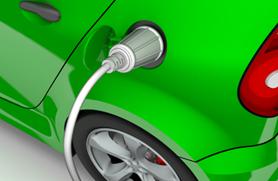Good thing then that you're not their target audience.
Yes i dont have a tinfoil hat on.
Follow along with the video below to see how to install our site as a web app on your home screen.
Note: This feature may not be available in some browsers.
Good thing then that you're not their target audience.
EVs have a lot of promise. Their torque curve is exceptional, less moving parts = less maintenance, and technology is moving so quickly we're likely to see annual improvements to battery technology, and they're quieter so residents near major thoroughfares will likely enjoy less traffic noise in time as well.
We already have quite a number of public charging stations too (Chargepoint are growing, as well as a few demonstrator stations installed by RACV/NRMA/RACQ etc).
What have you and other CC alarmists done to change your lifestyle to create a change in use of fossil fuel energy?
Let me know, and I will see if I can kiss it all better for you!
We tend to have an 'older' car fleet than European nations and the bulk of used cars are ICE so I wouldn't expect a huge shift in the short term, perhaps not in the medium term. We're almost certain to lag behind Europe.EVs have a few advantages over vehicles powered by hydrocarbons. And a few significant drawbacks. Despite government targets, it remains to be seen whether they will develop into more than a niche product in Australia.
Did he say when?
If not, he's not necessarily wrong...

Oh my...Within yours and mine children lives in 1913!

We tend to have an 'older' car fleet than European nations and the bulk of used cars are ICE so I wouldn't expect a huge shift in the short term, perhaps not in the medium term. We're almost certain to lag behind Europe.
There were projections by economists that the percentage of EVs in Australia would remain fairly low until mid 2020s as more choice and increasing volume won't really bring down the unit cost for a few years. At the moment the EV/Hybrid version of regular ICEs attracts a hefty premium, I imagine that will fall given the Euro manufacturers moving to an all EV/Hybrid model.
I assume that long haulers will still be diesels for quite a while though, especially in Australia given the distances interstate truckies cover.
However, every skeptic is a denier (or worse), right?Mofra already mentioned he is not a CC alarmist, neither am i. Not sure why you keep assuming every AGW'er is an alarmist.

 climatism.blog
climatism.blog
Yep all valid points.Agree. The initial outlay will be prohibitive to many people. A Nissan Leaf costs $49,990 before on-road costs. A Tesla Model 3 costs $66,000 for the standard range and $85,000 for the long range model. Compare these prices to some of the popular small cars. Hyundai i30 $22,990, Mitsubishi ASX $24,990, Mazda CX-$35,150, Toyota Corolla $23,335, Kia Cerato $25,790, Mitsubishi Outlander $25,440. Of course, the initial outlay will be offset by cheaper running costs, but it will be a barrier for many to have to fork out two or three times the price for a new car.
Then you have other practicality issues.
Charging overnight at home will be the main source of power but not everyone has secure off street parking to allow that. Currently the public chargers are free or lost cost but prices could jump as EVs become more popular. As has happened in Norway where a recent price hike has meant powering an electric vehicle can be more expensive than fuelling a similar petrol or diesel car.
The other thing that happens as EVs become more popular is having to queue for a charger. So you spend time queueing, then depending on your car and how much charge you need it can take between 30 minutes to over two hours. People with busy lives won't tolerate this.
Yes cause fossil fuel companies have no "interest" in it, right? Having "deniers only" in your group also sounds very "balanced", does it?
Why is it fossil fuel companies are criticised for funding a study, but its perfectly acceptable for renuable energy companies to do the same?LOL a study funded by fossil fuel company...what do you think the conclusion might be 99.99% percent of the time? without even reading it? i am willing to read independent researches from REAL scientists without a conflict of interest and peer reviewed by the same.
I didn’t think they were talking about convictions, only charges.You have trained in law so you know that folks are just ignorantly parroting media reports.
The layperson should be informed that the charge itself can be difficult to make out:
Arson (Vic)
Four elements the prosecution must prove beyond reasonable doubt:
1. The accused damaged or destroyed property by fire; and
2. The property belonged to another person; and
3. The accused purposely damaged or destroyed the property, or knew or believed that damage or destruction was the likely result of his or her actions; and
4. The accused had no lawful excuse for damaging or destroying the property.
Criminal Charge Book
www.judicialcollege.vic.edu.au
If you're dealing with minors (as has been reported in significant numbers in the media reports), then making out the elements outlined in point 3 becomes even more difficult.
Again, folks should bypass the term "arson" and refer to fires as "believed to have been created by human actions".
I'm sure it will be a mixture of charging options for some time, grid power in the metropolitan centres to do the bulk of the work initially with solar charge points already being trialled in some servos along the Hume.
It may change the equation for solar panels on homes though, making it more attractive and/or increasing consumer demand for bigger systems - some EVs have the capacity to feed power back to the home so they operate as additional battery storage
Companies are already starting to adjust to a lower carbon industrialised world. We already have hydrogen powered bus fleets in Australia. Vic Market has been using air-powered vehicles since the 60s. We could have been a part of a new industry but yet again it seems we've missed the boat.
Snake made an interesting post about hydrogen production earlier in the thread so there are still opportunities available for Australian industry.
I think the premise of the car battery reverse feeding the home is more of an emergency measure in the event of blackout, it would surely shorten the lifespan of the car battery if it was being used to do this regularly.I'd be hesitant to use the car as a battery for the house because the batteries don't like being discharged to half their charge, but it does bring up an interesting point.
Imagine a scenario where giant power plants (whether nuclear, solar farms etc) are pumping power to every home at full blast to charge absolutely massive batteries at home, let's ignore the energy density issues for a moment, and then all the home power and charging cars are from the battery.
There shouldn't be any worry about ramping up demand for power from the grid if everyone wants to put their AC on at 4pm, our main generators would be feeding the grid at a fairly constant rate to keep the batteries topped up and operating between 70 to 100% charge which should last a really, really long time.
A battery buffer system would mean we don't need as much dependence on generators ramping up but they need to be large enough that the use of the power isn't emptying the batteries to the point that we have 500,000 batteries in landfill every year as they die.
And then the lithium iron phosphate batteries don't need to have an off gassing facility that the lead acid ones might, so there could be a firebox of some description to try and keep the batteries from rupturing in a fire and turning them into giant fire lances that light the house next door on fire.
It would cost a fortune and I worry that making the standard home battery too small would mean they die earlier and we are then facing a toxic landfill problem.

I don't need to prove anything. The scientists and researchers have proved it all. No force either, just a realisation from various industries that climate change is here and we need to adapt to it. Deniers will politicise it and blame arsonists, the greens Dan Andrews and whoever else Miranda Devine tells them to. But in the meantime the rest of the world is getting on with solutions. Just a shame we're stuck with Luddites in government here, and missing out on billions of dollars being spent globally on the new tech, while our coal power stations becone less and less reliable. But hey at least guys like Adani and Palmer will continue to benefit from it.You can’t prove that man made climate change is occurring outside of minuscule amounts so you’re willing to resort to force to get your way. No one should be surprised about this.

I'd be hesitant to use the car as a battery for the house because the batteries don't like being discharged to half their charge, but it does bring up an interesting point.
Imagine a scenario where giant power plants (whether nuclear, solar farms etc) are pumping power to every home at full blast to charge absolutely massive batteries at home, let's ignore the energy density issues for a moment, and then all the home power and charging cars are from the battery.
There shouldn't be any worry about ramping up demand for power from the grid if everyone wants to put their AC on at 4pm, our main generators would be feeding the grid at a fairly constant rate to keep the batteries topped up and operating between 70 to 100% charge which should last a really, really long time.
A battery buffer system would mean we don't need as much dependence on generators ramping up but they need to be large enough that the use of the power isn't emptying the batteries to the point that we have 500,000 batteries in landfill every year as they die.
And then the lithium iron phosphate batteries don't need to have an off gassing facility that the lead acid ones might, so there could be a firebox of some description to try and keep the batteries from rupturing in a fire and turning them into giant fire lances that light the house next door on fire.
It would cost a fortune and I worry that making the standard home battery too small would mean they die earlier and we are then facing a toxic landfill problem.

I don't need to prove anything. The scientists and researchers have proved it all. No force either, just a realisation from various industries that climate change is here and we need to adapt to it. Deniers will politicise it and blame arsonists, the greens Dan Andrews and whoever else Miranda Devine tells them to. But in the meantime the rest of the world is getting on with solutions. Just a shame we're stuck with Luddites in government here, and missing out on billions of dollars being spent globally on the new tech, while our coal power stations becone less and less reliable. But hey at least guys like Adani and Palmer will continue to benefit from it.
Renewables, Carbon Capture and storage, DAC and other NETs. Look in to it if you want to learn. Ignore it if you don't."and missing out on billions of dollars being spent globally on the new tech,"
What is this "new tech" you write / speak about?
Where does it come from?
How is it made and what from?
Is it Co2 neutral? How?
etc
Anythink?
More like a giant grid fed powerwall, but the concept would be the same - a battery kept to full by the grid that when the sun goes down will power the world.You're talking about a Uninterruptible Power Supply (UPS) then I'd imagine? Not new technology but new-ish in the domestic sense.

Uninterruptible power supply - Wikipedia
en.wikipedia.org
More like a giant grid fed powerwall, but the concept would be the same - a battery kept to full by the grid that when the sun goes down will power the world.
The IT guys at my old work described them as a paracute to stop the server from crashing hard as power went out, letting it turn off how it is supposed to.Yeah fair enough, a UPS is more of a piecemeal solution, not intended for long run times.
